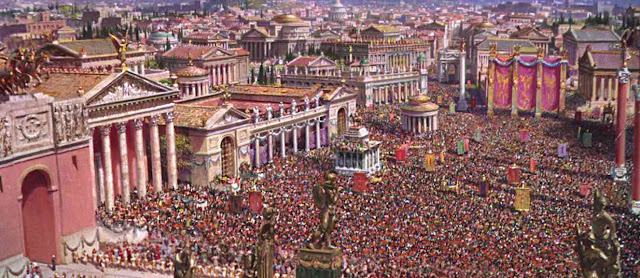First among these must be reckoned the military tribunes, of whom there were normally six to each legion. Originally they were appointed by the consuls, but in 362 B.C. the election of six out of the regular number of twenty-four needed for the regular four legions was entrusted to the comitia tributa, and later others were similarly elected. The number however varied with the number of the legions and it was always for the consuls to fill up vacancies.
Minor civil magistracies were: (a) the tresviri capitales who exercised subordinate functions in connection with criminal jurisdiction, providing for the imprisonment of accused persons pending trial, arranging for executions and probably dealing on their own authority with slaves and foreigners. From their responsibility for the prevention of nocturnal disorder they were commonly known as tresviri nocturni. (b) The tresviri monetales, or masters of the mint, whose creation in 289 B.C. is thought to mark the beginning of coinage at Rome (c). Six commissioners for the upkeep of roads, of whom four were responsible for the streets of Rome itself, two for those in the immediate neighbourhood. They worked under the control of the aediles. More important for the lawyer are the judicial magistrates, (d) four praefecti Capuam Cumas, praetorian delegates for jurisdiction in these cities, and (e) x viri stlitibus iudicandis. These were associated with lawsuits involving freedom, and though they acted, during the republic, only as jurymen, were elected, and counted as magistrates. The reason is perhaps to be found precisely in the great importance, especially to the lower classes whose family tree might be hazy, of these trials for liberty.
The electing assembly was in all cases the comitia tributa, and by the end of the republic, all the minor civil officers were spoken of collectively as the viginti sex viri; it was usual, perhaps necessary, to have served in one of these offices before holding the quaestorship.
----------
- The republican constitution
+ The republican constitution: Elements
+ The struggle between the orders
+ The assemblies of the people
+ Characteristics and procedure of roman assemblies
+ The Senate
+ The consulate
+ The praetorship
+ The aedileship
+ The quaestorship
+ The censorship
+ The tribunate
+ The dictatorship
----------
Source:
Historical introduction to the study of Roman law, H. F. Jolowicz, page 55.
